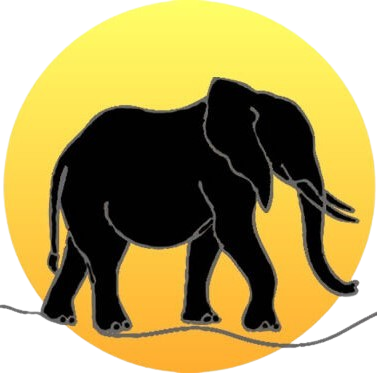Kenya is a country with a favorable climate that allows visitors to travel throughout the year.
The annual wildebeest migration takes place between July to October every year, the wildebeest accompanied by zebras cross the Mara River to Serengeti.
Yes, It is a safe country to visit for your holiday anytime, we however recommend you be cautious everywhere you visit.
Almost all safari lodges / tented camp accommodations during your safari do provide free Wifi. These are in the three accommodation levels of economy, comfort, and luxury. Wifi is provided in the public areas of the safari lodges / tented camps including the reception, dining areas, and lounge. It is not provided in the individual rooms/ tents.
We recommend you confirm your booking as early as possible, probably 2 months before your travel to enable effective planning
We recommend you confirm your booking as early as possible, probably 2 months before your travel to enable effective planning
Yes, it is possible if you are on a private safari, however, It would also be subject to the availability of extended accommodation in the respective tented camp/lodge. An extra day on safari shall also require extra payment.
In case you are booked on a Kenya fly-in safari and or you would consider taking local/domestic safari flights to the national parks/game reserves, there is a baggage allowance.
The baggage allowance for local domestic flights commuting between national parks is 15kgs excluding hand luggage. We can organize a place to store extra luggage not required on safari at our Nairobi or Mombasa offices for free.
You may also choose to pay an extra $ 5 per kilogram for any extra baggage if you decide to carry all your baggage around with you (this is subject to flight/carrier capacity)
A safari lodge in Africa is located in a remote Wildlife area and is made up of several cottages/chalets spread over a landscaped land. There shall be a main building that houses a restaurant, bar, and gift shop together with the reception and also administration facilities. In most cases, there may be a swimming room.
The lodge’s en-suite guestrooms are spread in smaller separate scattered cottages around the main central building.
The safari-tented camps share some similarities with safari lodges in layout, purpose, and location.
A tented camp is composed of the Main building (housing the public areas) usually thatched African style for effect. It may also be made of a large tent. The en-suite guest tents are scattered around the main building providing a private feel. The tented camp is a composition of large en-suite walk-in tents that are built on a solid floor base and are complete with private bathrooms and a small terrace or veranda.
Essentially, they are rooms with the exterior being canvas rather than wood or brick.
Tipping in Kenya is a good gesture of good service and we highly recommend it. Individual waiters, porters, and other hotel service employees may provide exemplary service and it is your discretion to decide to tip. Usually, $ 1 -$ 5 per move or sitting is appropriate and appreciated.
It is however customary to tip your safari driver/guide at the end of the safari tour. The amount is dependent on your evaluation of the quality of the service rendered. An average of $ 10 per guest per day or 5-10% of your (safari only cost ) is suggested. The amount is however at your discretion, you are welcome to provide additional compensation to any staff who have provided special services.
You may tip in Kenya shillings, USD, or in Euro at the end of your safari/tour preferably in an envelope.
Tourists visiting Kenya must have a valid visa. Your passport must also be valid for at least six months after you arrive in the country.
Luxury safari Lodges and Tented Camps.
In almost all instances, luxury lodges & Tented camps are located at vantage locations within the national parks and game reserves. They are unique in architecture and design. They also provide easy access to the game viewing areas. The facilities and comfort levels are of a higher standard.
There shall most likely be a swimming pool in most of the luxury facilities
Comfort Safari Lodges and Tented Camps.
Comfort lodges and camps may be located inside or just at the boundaries of the national parks and game reserves. Others may be slightly further. In all instances, they are less than 30 minutes from the park entry gate. The facilities’ comfort levels are sufficiently adequate although slightly lower than for luxury accommodation level. The rooms and tents in this comfort level category are also private and en suite. Most comfort lodges / tented camps shall have a swimming pool.
The countries are home to some of nature’s greatest events, Kenya & Tanzania are accessible all year. However, to see what you want, you must be there is the right place at the right time.
Click on the contacts below to chat on WhatsApp
Travel Further For Unforgettable Experiences.
